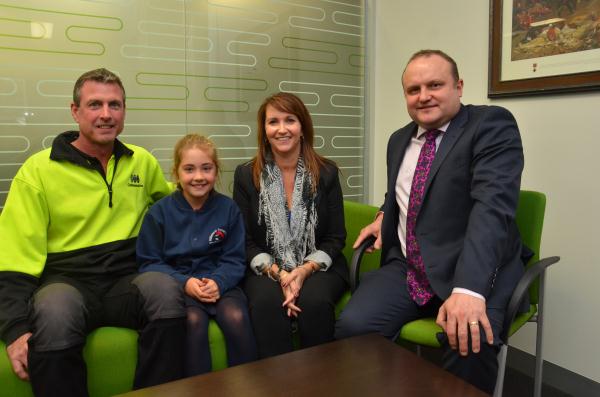
By LACHLAN MOORHEAD
THE medication for an ultra-rare blood disease is still not guaranteed to be subsidised by the Federal Government despite a recent recommendation from the Pharmaceutical Benefits Advisory Committee (PBAC).
Soliris, the most effective treatment available for the rare atypical haemolytic uraemic syndrome (aHUS), was recommended by PBAC to be listed on the Pharmaceutical Benefits Scheme (PBS) at a meeting last month but pricing negotiations between the Federal Government and Soliris’ manufacturer Alexion Pharmaceuticals are still ongoing, with seemingly no end in sight.
Without subsidisation, Soliris is estimated to cost Australian patients roughly $500,000 a year.
Federal MP for La Trobe Jason Wood, who recently met again with nine-year-old aHUS sufferer Holly Van Der Loop and her Narre Warren family, said the process of having Soliris placed on the PBS was only half way.
“It’s great to hear that the PBAC has recommended Soliris to be listed on the PBS, news that we’ve been waiting to hear for a while now,” he said.
“Unfortunately though, we’re only about 50 per cent of the way through the process.
“A positive PBAC recommendation is a very important step in the listing process, but other steps need to be taken before a listing is achieved.
“Pricing negotiations, finalisation of the condition for listing, and quality and availability checks all have to be done before we can breathe a full sigh of relief.”
Holly was diagnosed with aHUS in October 2012, a life-threatening disease that can severely damage the kidneys, heart and brain, and which affects only two in one million Victorians.
Holly’s mother Linda thanked Mr Wood for pushing to have Soliris subsidised, and said the medication was currently beyond the reach of “everyday Australians”.
“I hope that it will be subsidised because if Holly needs it in the future, it’s something that a normal everyday family can’t afford,” she said.
While Holly’s condition has now stabilised, Linda is frighteningly aware of the rate of recurrence of the disease.
“I’m worried that every time she goes to school, she’ll contract an infection which could trigger another aHUS episode,” Linda said.
“I don’t know if Holly’s body could cope with another attack and having plasma exchange again.”
For more information, or to sign the aHUS Patient Support Group Australia petition, visit www.ahus.com.au






